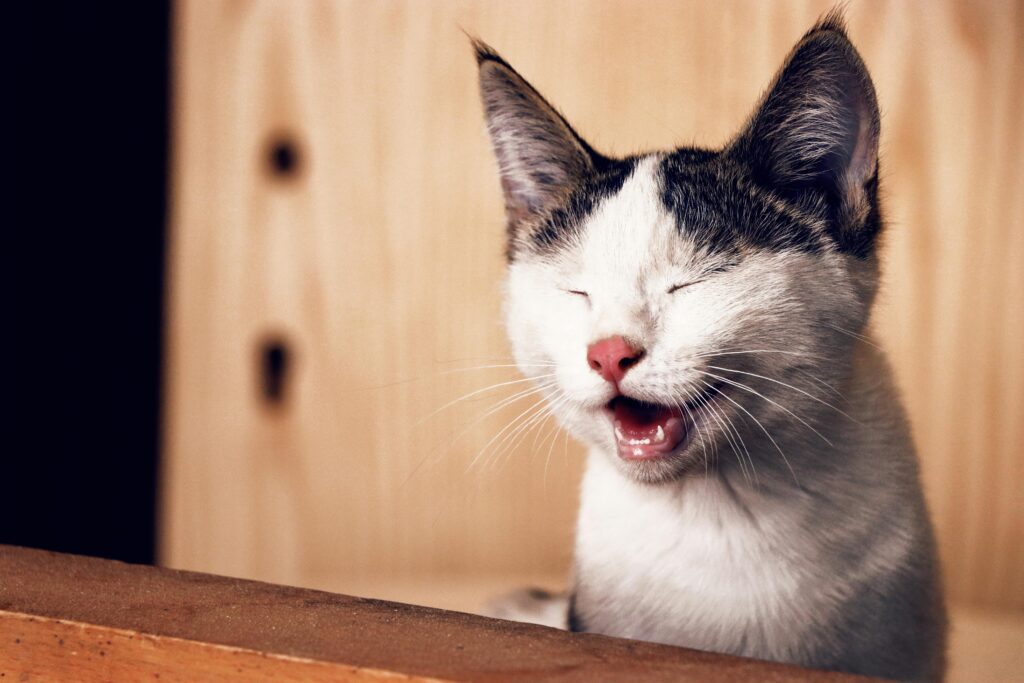Laughter is a universal language that transcends barriers and unites people through joy. Here are 50 Jokes to Bring Laughter into Your Life! In today’s fast-paced world, we often forget to take a moment to enjoy the lighter side of life. That’s why we’ve compiled a list of 50 hilarious jokes designed to bring a smile to your face and lighten your mood. Whether you’re sharing them with friends, family, or colleagues, these jokes are sure to spark laughter and create memorable moments.

Table of Contents
The Power of Humor in Daily Life
Humor is more than just entertainment; it plays a vital role in our well-being. A good laugh can relieve stress, improve mood, and even foster connections among people. From casual conversations to social gatherings, humor serves as an icebreaker and helps create a warm atmosphere.
Let’s dive right into our collection of hilarious jokes that will surely tickle your funny bone!
- Why don’t scientists trust atoms?
Because they make up everything! - I told my wife she was drawing her eyebrows too high.
She looked surprised. - What do you call a fish wearing a bowtie?
Sofishticated! - Why was the computer cold?
It left its Windows open! - I used to play piano by ear,
but now I use my hands. - Knock, knock. Who’s there?
Lettuce. Lettuce who?
Lettuce in, it’s freezing out here! - What did the lettuce say to the celery?
Let’s stalk this place! - What’s orange and sounds like a parrot?
A carrot! - I’m reading a book on anti-gravity.
It’s impossible to put down! - Why don’t skeletons fight each other?
They don’t have the guts! - How many software engineers does it take to change a light bulb?
None. That’s a hardware problem! - Why did the scarecrow win an award?
Because he was outstanding in his field! - Parallel lines have so much in common.
It’s a shame they’ll never meet. - What do you get when you cross a snowman and a vampire?
Frostbite! - Why did the bicycle fall over?
Because it was two-tired! - Why did the man put his money in the blender?
Because he wanted to make some liquid assets! - What did Mars say to Saturn?
Give me a ring sometime! - Why did the doctor carry a red pen?
In case they needed to draw blood! - What do you call a time traveler who is always late?
A procrastinator! - Why was the math book sad?
Because it had too many problems! - What did the baby corn say to the mama corn?
Where’s popcorn? - Why did the golfer bring two pairs of pants?
In case he got a hole in one! - Why don’t oysters donate to charity?
Because they are shellfish! - Why was the broom late?
It swept in! - What do you call a bear with no teeth?
A gummy bear! - How do you organize a space party?
You planet! - What do you call a snowman with a six-pack?
An abdominal snowman! - Why did Batman and Robin never use smartphones?
Because they couldn’t find the Bat-App! - What do trees wear to get ready for a night out?
Their best leaves! - What do you call a dinosaur with an extensive vocabulary?
A thesaurus! - What do you call a cat that throws all the most expensive parties?
The great Catsby! - Why was the math book sad?
Because it had too many problems! - Why did the cookie go to the doctor?
Because it felt crummy! - Why don’t programmers like nature?
It has too many bugs! - I used to be indecisive.
Now I’m not so sure. - Why do cows have hooves instead of feet?
Because they lactose! - Why was the teacher wearing sunglasses?
Because her students were so bright! - What do you call cheese that isn’t yours?
Nacho cheese! - Why did the coffee file a police report?
It got mugged! - What do you call a snowman with a six-pack?
An abdominal snowman! - Why did the bicycle fall over?
Because it was two-tired! - Why did the math book look so sad?
Because it had too many problems! - Why don’t eggs tell jokes?
Because they might crack up! - What do you call fake spaghetti?
An impasta! - What did one wall say to the other wall?
I’ll meet you at the corner! - Why do seagulls fly over the ocean?
Because if they flew over the bay, they’d be bagels! - What do you call an alligator in a vest?
An investigator! - Why can’t you give Elsa a balloon?
Because she will let it go! - Why did the banana go to the doctor?
Because it wasn’t peeling well! - What do you call a pile of cats?
A meowtain!
Embrace the Laughter!
We hope you enjoyed this collection of 50 hilarious jokes that can brighten anyone’s day. Laughter is a precious gift, and sharing these jokes can foster connections and create lasting memories. So, the next time you’re in need of a good laugh or want to uplift someone’s spirits, share these jokes and spread the joy!
Why Are Jokes Funny? Understanding the Science and Humor Behind Laughter
Humor is a universal part of human life. We laugh at jokes, stories, and situations that are funny, but have you ever wondered why jokes are funny? What makes us laugh, and why do certain jokes resonate with us more than others? In this article, we’ll explore the science behind humor, the different types of jokes, and why they make us laugh.
What Makes Something Funny?
To understand why jokes are funny, we first need to look at how our brains process humor. Humor involves cognitive, emotional, and social elements. When we hear a joke, our brain processes the setup and punchline, and if everything aligns correctly, we find it funny.
Here are some factors that contribute to why jokes make us laugh:
1. Surprise or Unexpectedness
One of the main reasons jokes are funny is because they introduce an element of surprise. A good joke often sets up expectations and then delivers something unexpected. This break from what we anticipate is what causes the laughter. When something catches us off guard, we laugh because it triggers a positive emotional reaction.
- Example: A classic joke like, “Why don’t skeletons fight each other? They don’t have the guts,” plays on the surprising punchline. The setup leads you to think about skeletons, but the punchline flips the expectation with a playful twist.
2. Timing and Delivery
Timing is crucial in comedy. A well-timed joke can be much funnier than one told too early or too late. The delivery—the way the joke is told—also impacts its humor. A pause before the punchline or a dramatic delivery can build anticipation and make the punchline even more effective.
- Example: Stand-up comedians often use timing to their advantage. They may pause for a second before delivering the punchline to create tension, making the joke funnier when it finally lands.
3. Relatability
Jokes often resonate with us because we can relate to the situation or concept being humorously portrayed. When we hear a joke that aligns with our experiences or beliefs, we are more likely to find it funny. This is why inside jokes, shared by friends or communities, often have a special, more personal humor.
- Example: A joke about the challenges of working from home might make us laugh because many of us can relate to the situation.
4. Cognitive Dissonance
Humor often comes from cognitive dissonance—the mental discomfort we feel when two ideas conflict. Jokes play with our expectations by presenting two contradictory ideas, and the humor comes from the way our minds try to resolve the contradiction.
- Example: “I told my wife she was drawing her eyebrows too high. She looked surprised.” The humor comes from the unexpected twist: instead of taking the comment as a joke, the wife is surprised, highlighting a contradiction.
5. Incongruity Theory
The incongruity theory of humor suggests that things are funny when they don’t fit together as we expect. This theory explains why absurd or random humor can be so effective. When two unrelated things are combined in a way that doesn’t make sense, the unexpected nature of the joke makes it funny.
- Example: “Why did the scarecrow win an award? Because he was outstanding in his field.” The humor comes from the dual meaning of “outstanding” – it could refer to both being excellent and physically standing out in a field.
The Types of Jokes and Why They’re Funny
Not all jokes are the same, and different types of jokes appeal to different people. Here are a few types of jokes and the unique elements that make them funny:
1. Puns
Puns are jokes that play on words with double meanings or similar sounds. They are often simple, but their cleverness and wordplay make them amusing.
- Example: “I’m reading a book on anti-gravity. It’s impossible to put down!” Puns are funny because they make us appreciate the clever twist on the meanings of words.
2. Knock-Knock Jokes
Knock-knock jokes are a type of wordplay that relies on a call-and-response format. These jokes are often lighthearted and can be fun for kids and adults alike.
- Example: “Knock, knock. Who’s there? Lettuce. Lettuce who? Lettuce in, it’s cold out here!” The humor comes from the interaction and the playful twist on the expected response.
3. Dark Humor
Dark humor uses morbid or taboo subjects to create humor, often dealing with topics that are uncomfortable or sensitive. While it can be controversial, many find dark humor funny because it allows them to confront difficult issues in a less serious way.
- Example: “I’m on a seafood diet. I see food, and I eat it!” Dark humor is funny because it takes something serious or awkward and makes it lighthearted.
4. Slapstick Comedy
Slapstick is a physical form of comedy that involves exaggerated actions or situations, often resulting in funny accidents or misfortunes. This type of humor is visual and easy to understand, which is why it’s popular with all ages.
- Example: Think of a scene where someone slips on a banana peel. The unexpected fall and over-the-top reaction make it funny because it’s so exaggerated.
5. Observational Humor
Observational humor involves making funny comments about everyday life and common experiences. Comedians often use this type of humor because it connects with a wide audience.
- Example: “Why is it that the minute you sit down to relax, someone calls your name?” Observational jokes make us laugh because we recognize the truth in them.
Why Do We Laugh?
Laughter is our body’s way of reacting to humor. It’s a social behavior that helps bond people together and signals positive emotions. When we laugh at a joke, our brain releases endorphins, which are chemicals that improve our mood and make us feel good. This is why jokes that make us laugh can improve our well-being.
Humor also strengthens social connections. Sharing a laugh with someone creates a sense of camaraderie and helps build trust. It’s one of the reasons why humor is used in conversation, relationships, and even professional environments—it can lighten the mood and bring people closer.
Conclusion
Jokes are funny because they surprise us, provide relief from tension, and create connections through shared experiences. Whether it’s through wordplay, unexpected punchlines, or absurd scenarios, humor taps into our emotional and cognitive responses to create laughter. The next time you hear a joke that makes you laugh, you’ll know that it’s the result of clever timing, surprise, and relatability—all factors that contribute to why jokes are so universally funny.
